Inspiring Reasons Why Teachers Day is a Powerful Celebration of Gratitude
Introduction
Teachers’ Day is not just another date on the calendar—it is a day of heartfelt gratitude, respect, and recognition for those who shape society through education. Teachers are the guiding lights who instill knowledge, values, and discipline in students, making them capable of facing the challenges of life. Celebrated in different parts of the world on various dates, Teachers’ Day in India is observed on 5th September every year to honor the birth anniversary of Dr. Sarvepalli Radhakrishnan, a philosopher, teacher, and the second President of India.
This day is more than just celebrations in schools and colleges—it is a reminder of the noble role teachers play in shaping individuals, societies, and nations. Let us dive deep into its history, facts, timeline, significance, observance, FAQs, and its importance in our daily life.
History of Teachers’ Day
The roots of Teachers’ Day in India go back to Dr. Sarvepalli Radhakrishnan (1888–1975), a celebrated scholar, philosopher, Bharat Ratna awardee, and the second President of India. When his students and friends wanted to celebrate his birthday, he humbly suggested,
“Instead of celebrating my birthday, it would be my proud privilege if September 5th is observed as Teachers’ Day to honor all teachers.”
Since then, 5th September 1962 has been officially celebrated as Teachers’ Day in India.
Globally, World Teachers’ Day is celebrated on October 5th, established by UNESCO in 1994, to acknowledge the rights and responsibilities of teachers across the world.
Interesting Facts about Teachers’ Day
India’s Teachers’ Day: Celebrated on 5th September, marking Dr. Radhakrishnan’s birth anniversary.
Global Teachers’ Day: Celebrated on 5th October by UNESCO and many countries worldwide.
First Celebration in India: Began in 1962 when Dr. Radhakrishnan became the President.
Different Countries, Different Dates: For example, in the U.S., it is celebrated on the first Tuesday of May.
Teacher Worship in Ancient India: In Gurukuls, students served their teachers (Gurus) as a sacred duty, showing that respect for teachers is deeply rooted in Indian culture.
Award Tradition: On this day, the National Teachers’ Awards are conferred to recognize outstanding educators in India.
Symbol of Gratitude: Teachers’ Day is not limited to schools—it is celebrated in colleges, universities, and even by professionals remembering their mentors.
Timeline of Teachers’ Day
1888 – Birth of Dr. Sarvepalli Radhakrishnan.
1931 – He became Vice-Chancellor of Andhra University, inspiring countless students.
1949 – Served as India’s Ambassador to UNESCO and USSR.
1952 – Became the first Vice President of India.
1962 – Took office as the second President of India. Teachers’ Day began this year.
1994 – UNESCO proclaimed October 5th as World Teachers’ Day.
Today – Celebrated in schools, colleges, and institutions across India with speeches, cultural programs, and teacher appreciation ceremonies.
Significance of Teachers’ Day
Expression of Gratitude: It reminds students to value the hard work and dedication of their teachers.
Cultural Importance: Teachers hold a divine status in Indian traditions, often equated with God.
Encouragement to Educators: The day uplifts teachers by acknowledging their contributions.
National Unity: It bridges students, teachers, and communities in celebrating knowledge.
Moral Reminder: Reinforces the importance of education and the teacher-student relationship.
Observance of Teachers’ Day
In Schools: Students organize cultural programs, poetry recitations, plays, and speeches. Senior students often take the role of teachers for a day.
In Colleges: Seminars, debates, and felicitation events are held to honor professors and lecturers.
Government Recognition: The Ministry of Education awards outstanding teachers with the National Teachers’ Awards.
Personal Gestures: Students often give cards, flowers, or gifts to their teachers as tokens of love.
Teachers’ Day Wishes (Heartfelt Messages)
“Happy Teachers’ Day! Thank you for being the guiding star in our lives.”
“To the mentor who shaped my future—wishing you a beautiful Teachers’ Day.”
“A teacher plants seeds of knowledge that grow forever. Happy Teachers’ Day!”
“Dear Teacher, your words have left a mark on my soul. Grateful always.”
“Happy Teachers’ Day to the light that removes the darkness of ignorance.”
Importance of Teachers in Our Life
Moral Guides: Teachers not only educate but also instill moral values.
Shaping Careers: They identify talents and help students achieve their goals.
Building Confidence: Teachers encourage students to overcome fear and speak up.
Role Models: Their discipline, patience, and knowledge inspire students.
Nation Builders: As Dr. A.P.J. Abdul Kalam said, “Teachers are the backbone of the country.”
Daily Life Impacts of Teachers
Teachers influence how we think, behave, and act in everyday life.
The discipline of punctuality, respect for others, and responsibility are often first taught by teachers.
Our ability to solve problems logically, communicate effectively, and work as a team stems from school teachings.
Even outside classrooms, lessons from teachers guide us in personal and professional challenges.
FAQs on Teachers’ Day
Q1. Why is Teachers’ Day celebrated in India on 5th September?
It marks the birth anniversary of Dr. Sarvepalli Radhakrishnan, who wished his birthday to honor teachers.
Q2. Is Teachers’ Day a public holiday in India?
No, it is not a public holiday, but schools and colleges organize special events.
Q3. Who was Dr. Sarvepalli Radhakrishnan?
He was a philosopher, teacher, Bharat Ratna awardee, Vice President, and later President of India.
Q4. How is World Teachers’ Day different from Indian Teachers’ Day?
World Teachers’ Day is celebrated on 5th October by UNESCO, while Indian Teachers’ Day is on 5th September.
Q5. How can students honor their teachers?
By respecting them, following their teachings, excelling in life, and expressing gratitude.
Conclusion
Teachers’ Day is not just a celebration—it is a soulful acknowledgment of those who dedicate their lives to shaping others. From ancient Gurukuls to modern classrooms, teachers remain central to learning, wisdom, and nation-building.
They teach us lessons beyond textbooks—about patience, courage, kindness, and humanity. Celebrating Teachers’ Day reminds us that behind every successful individual is a teacher who once believed in them.
As we express gratitude on this day, let us also pledge to carry forward their teachings in daily life, making society more enlightened and compassionate. Truly, Teachers’ Day is a celebration of gratitude, knowledge, and hope for a brighter future.
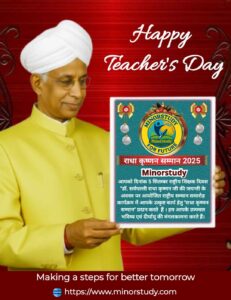

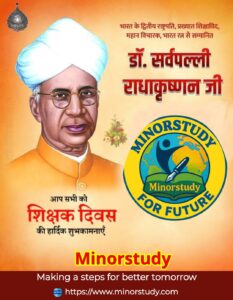
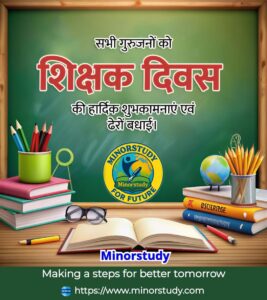
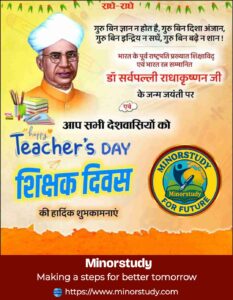
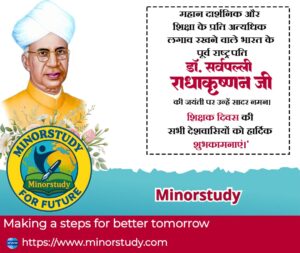
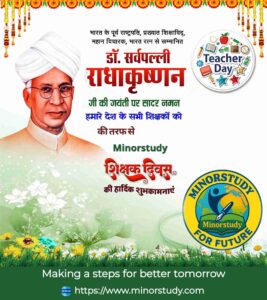
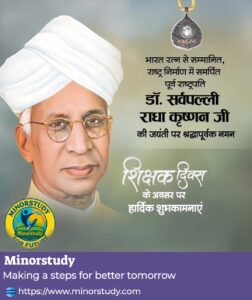

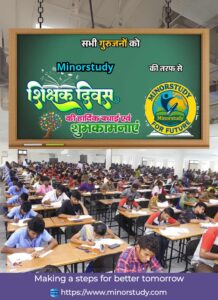
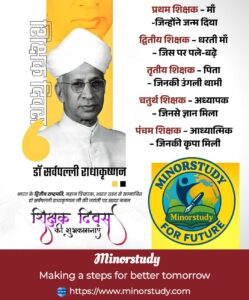



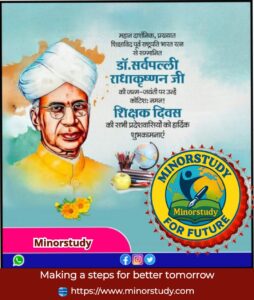

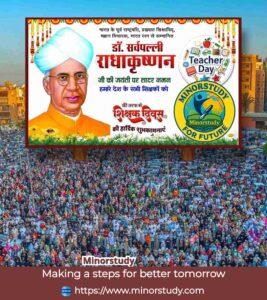









Thanks for sharing. I read many of your blog posts, cool, your blog is very good. https://accounts.binance.com/en/register-person?ref=JHQQKNKN
Can you be more specific about the content of your article? After reading it, I still have some doubts. Hope you can help me.